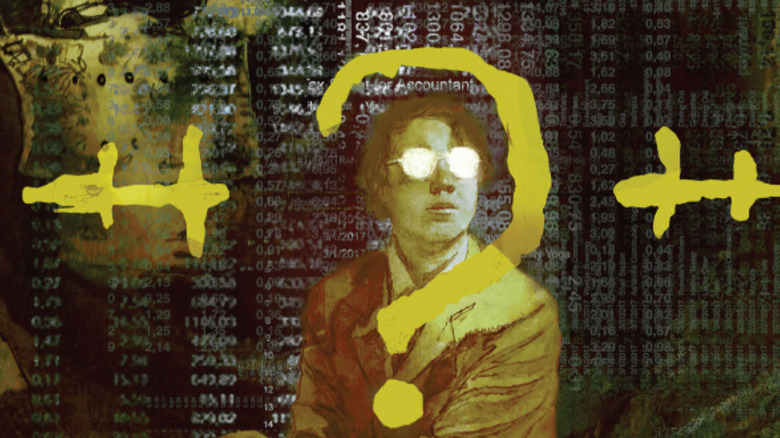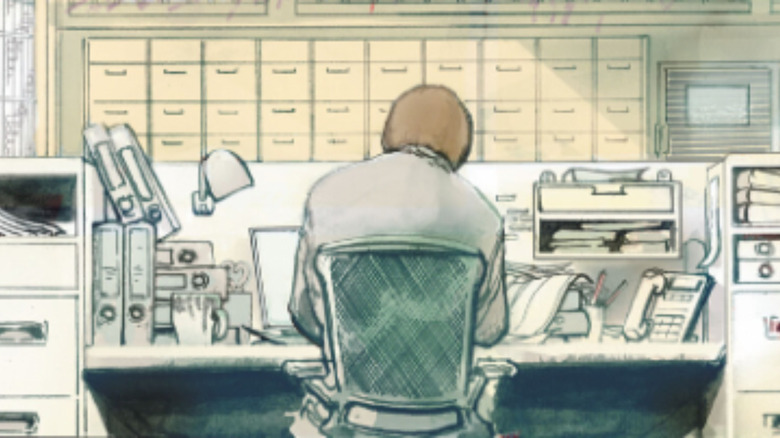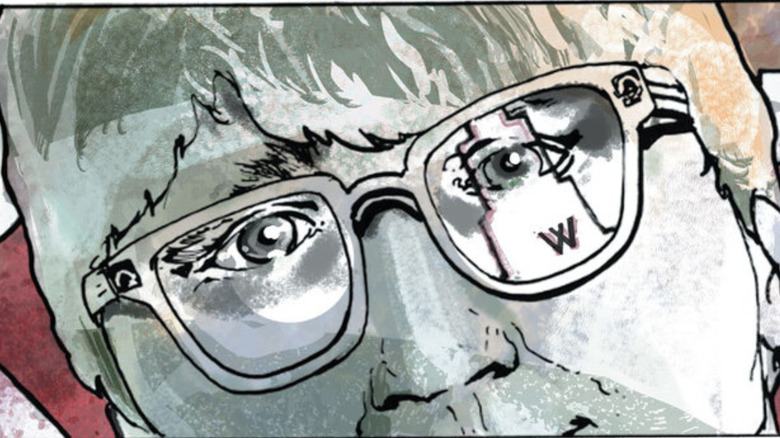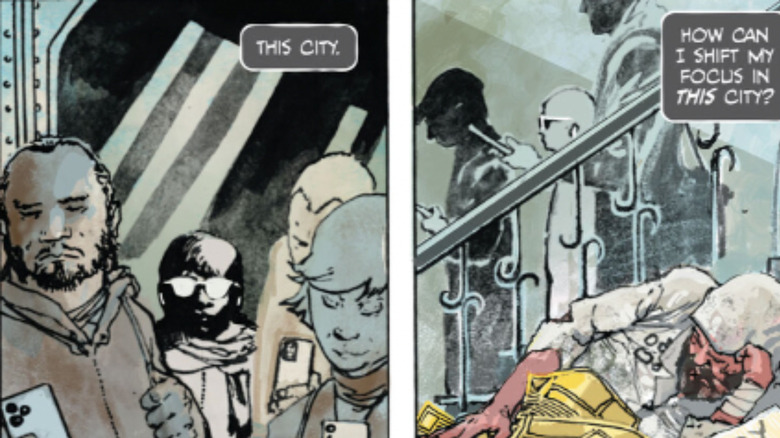The Riddler: Year One #1 Review: Paul Dano's Batman Prequel Is Black And Blue And Dead All Over
While he's well-known as an actor, Paul Dano's talent as a writer can't be understated. I still maintain that "Wildlife" deserved a Best Original Screenplay nomination back in 2019, and I really hope we get to see him make another movie soon. In the meantime, Dano has dipped his toes into the world of comic book media with a major role in Matt Reeves' "The Batman," where he played the classic rogue Riddler. His re-interpretation as a rage-fueled 4Chan incel was definitely a departure from other versions of the character, but at the time, Dano was praised for his scenery-chewing performance.
By all accounts, it makes sense for an actor to create the backstory of a character they play. After all, playing a role as a fully-realized character with a life not seen on the screen can really help them sell a performance. However, in the specific case of Dano and his take on the Riddler as shown in his DC Black Label miniseries "The Riddler: Year One," maybe he shouldn't have dived deeper. While the prose itself is well-written and the art beautifully illustrated by Steven Subic, this series looks to be treading some painfully familiar water, making it debatable whether readers should stick with it.
Just breathe
It's important to understand that the Riddler, or Edward Nashton in this case, is not the most reliable of narrators. This was a fact established in "The Batman," with his multiple driver's licenses and penchant for talking around important facts. Establishing this train of thought automatically puts his story in "Year One" under scrutiny — is he telling the truth, or is he creating a sob story for himself? That's still unknown, and the eventual end of the miniseries likely won't give us that answer.
In the meantime, let's just take the story of poor Ed being presented to readers at face value. According to him, he's a lonely forensic accountant with no friends and no real prospects in life. He yearns to be recognized by his superiors for his hard work, which is often taken advantage of and mocked by his supervisor, Zach. When he's not busy crunching numbers, he plays various puzzles on a website called Nigma (sound familiar?), where he gathers a small audience of impressed viewers.
Numbers, puzzles, and riddles ground him when he's trapped in a city filled with what he suspects is corruption and empty promises. Perhaps this is because of the safety and predictability they bring. However, when Ed witnesses a crime being stopped by a mysterious bat-like vigilante, his evolution from meek numbers nerd to serial killer begins.
You repulsive fool
"Year One" as a whole is a very sad comic, and we haven't even scratched the surface of its plot yet. Dano writes Ed almost entirely in internal monologue, occasionally talking to others, but more often wallowing in his own depressing thoughts. While a bit melodramatic at times, there is a palpable sense of grief in the thoughts Dano gives to Ed – we continue getting hints at a seriously traumatic childhood that was implied in "The Batman," as well as how Thomas Wayne's Renewal Project affected his life. While these are nothing more than sheer mentions of his hurt, they're intriguing enough to make the reader stick around to see it pay off.
However, in order to get to that payoff, readers will have to be subjected to some really uncomfortable and somewhat outdated stereotypes of the lone wolf narrative. It is important for me to acknowledge that this is the first of six issues, and the story arc could likely change. Unfortunately, that doesn't make the hints at Ed being on the autism spectrum any less cringe-inducing to read through. He is shown to have a poor and sometimes obsessive grasp of social interaction on top of his uncanny accounting abilities, even being called Rain Man as a joke by the aforementioned Zach. Even if it is revealed that Ed is not on the spectrum, associating these characteristics with that of a mass murderer is in extremely poor taste and is just overall really lazy storytelling.
An unnecessary piece of world-building
The biggest crime this series seems to commit thus far is that it just doesn't feel essential. While the hints at the Renewal Project and the deep-seated corruption of Gotham are interesting, the narrative of "Year One" is no different from similar origin stories like "Joker" – an emotionally fragile man is mad and depressed at the state of Society™, and he ends up taking drastic measures to "cure" it. In a weird way, it seems like Ed himself is the least interesting part of the story, something that should not be the case given how the story revolves entirely around him.
The Riddler as seen in "The Batman" worked because he was an enigma. Even when his true identity was revealed, he still carried himself in a way that made you question whether or not he was telling the truth. Of course, this could be maintained as the series progresses, but there is little incentive for the reader to actually keep going to see if this is the case. There is only so much that the minuscule hints of city-wide corruption, Dano's well-written internal monologues, and Subic's gorgeous art can really do to justify why we possibly should follow this bland and borderline tasteless depiction of Ed. "Year One" does the opposite of what it's meant to do, and this is perhaps the most puzzling riddle of all.
"The Riddler: Year One" #1 arrives in stores and digital retailers on October 25.



